Sale!
ISO 21101:2014 Adventure Tourism — Safety Management
Original price was: ₹25,000.00.₹20,000.00Current price is: ₹20,000.00.
ISO 21101:2014 is a standard that focuses on safety management in adventure tourism. This standard provides guidelines and requirements to ensure the safety of participants in adventure tourism activities. Adventure tourism involves activities that are often conducted in challenging or remote environments and can include activities such as mountaineering, trekking, white-water rafting, and diving, among others.
Here are some key aspects and requirements covered by ISO 21101:2014:
1. **Risk Assessment**: The standard emphasizes the importance of conducting thorough risk assessments for all adventure tourism activities. This involves identifying potential hazards, evaluating risks, and implementing appropriate control measures to mitigate those risks.
2. **Safety Management System**: ISO 21101:2014 requires organizations involved in adventure tourism to establish and maintain a safety management system (SMS). This system should include policies, procedures, and processes to manage safety effectively.
3. **Training and Competence**: Organizations must ensure that their staff and guides are adequately trained and competent to conduct adventure tourism activities safely. This includes training in first aid, emergency response, and specific activity-related skills.
4. **Equipment and Maintenance**: The standard outlines requirements for the inspection, maintenance, and testing of equipment used in adventure tourism activities. Equipment must be in good working condition and meet relevant safety standards.
5. **Emergency Preparedness and Response**: Organizations must have plans and procedures in place to respond to emergencies effectively. This includes procedures for communication, evacuation, and medical assistance.
6. **Participant Information and Briefing**: Participants should be provided with clear and accurate information about the risks associated with the activity and any necessary safety precautions. Pre-trip briefings should be conducted to ensure participants are aware of safety procedures and requirements.
7. **Record Keeping**: Organizations should maintain records of safety-related activities, incidents, and inspections. This helps in monitoring and improving safety performance over time.
Adhering to ISO 21101:2014 helps organizations in the adventure tourism industry to enhance the safety of their operations, protect participants, and build trust with customers. It provides a framework for continuous improvement and helps organizations to identify and address potential safety issues proactively.
It’s essential for organizations involved in adventure tourism to familiarize themselves with ISO 21101:2014 and implement its guidelines to ensure the safety and well-being of participants and staff. Compliance with this standard can also be a valuable marketing tool, demonstrating a commitment to safety and quality in adventure tourism operations.

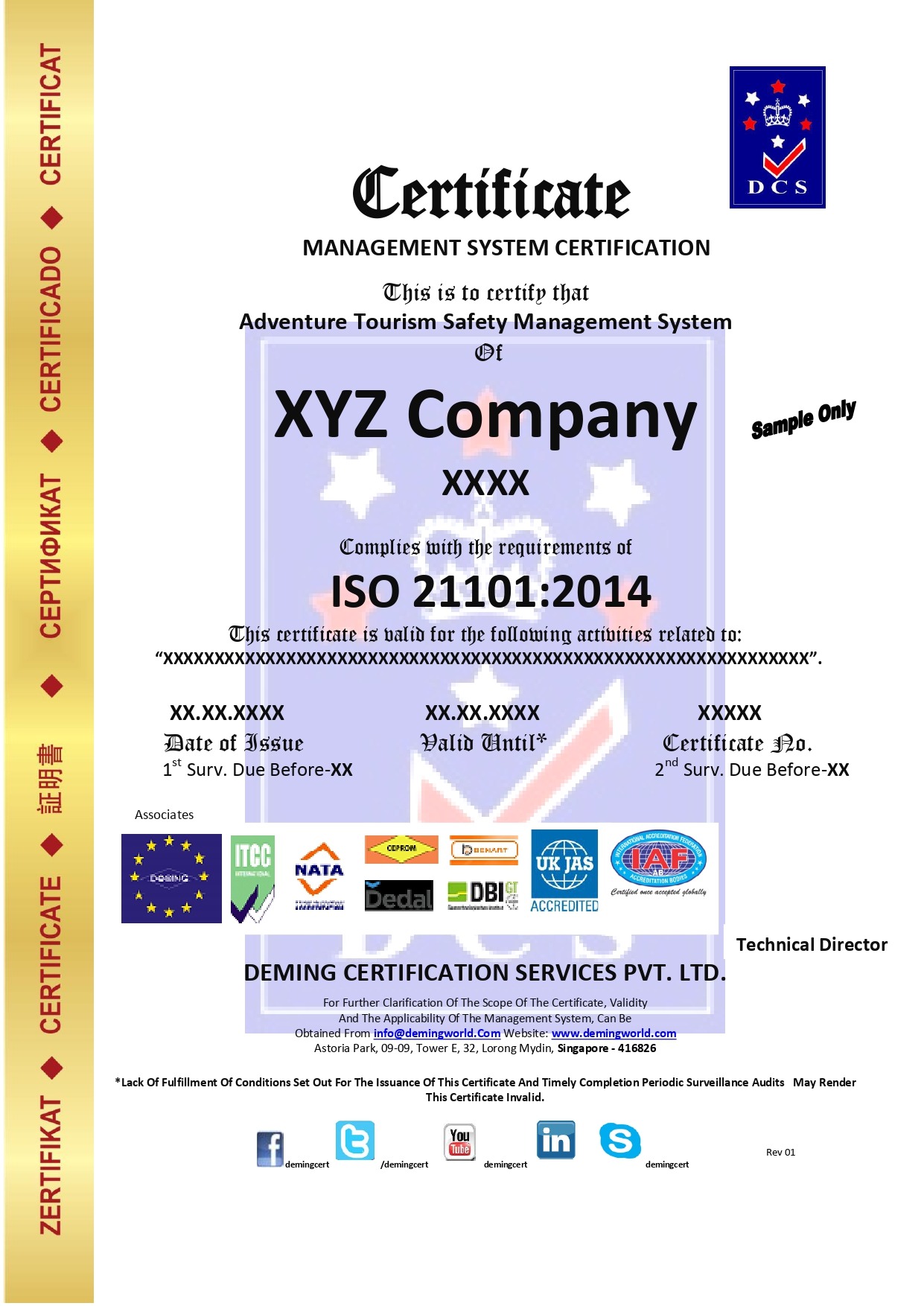
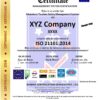
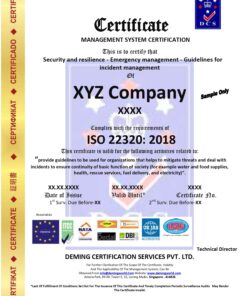
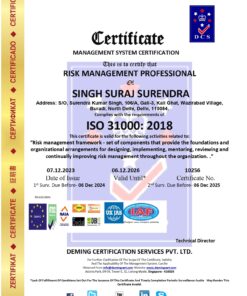
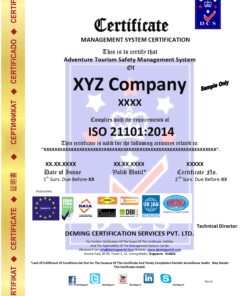



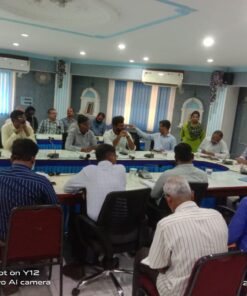
Reviews
There are no reviews yet.